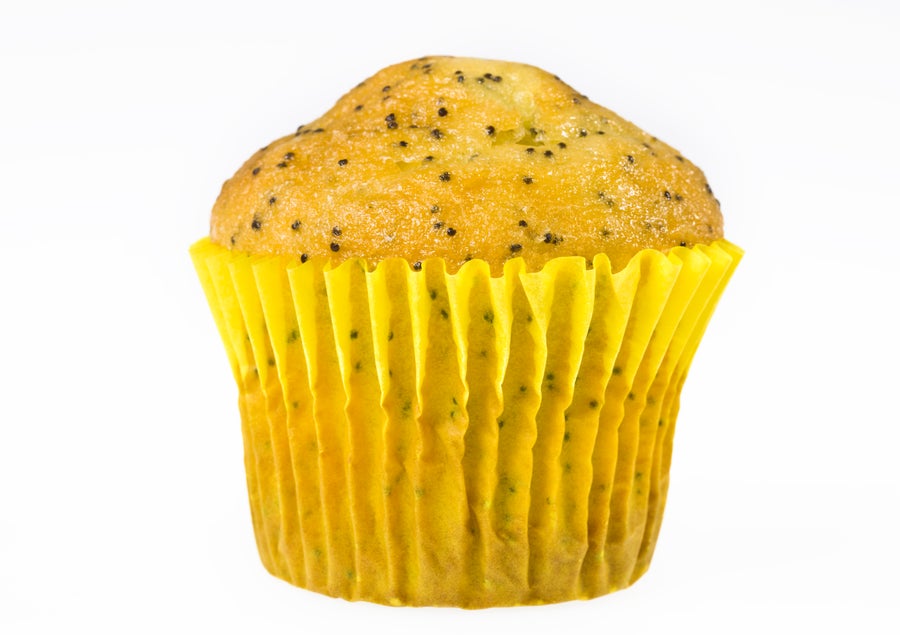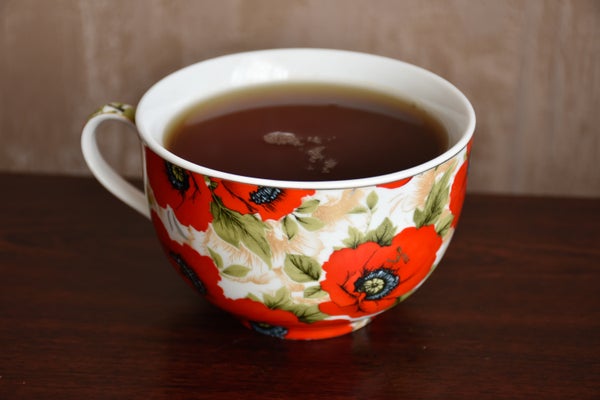It sounds like a joke: poppy seeds infused with opioids.
Indeed, it was a plotline on the sitcom Seinfeld. But for some it has been a tragedy.
People have died after drinking tea brewed from unwashed poppy seeds.
On supporting science journalism
If you're enjoying this article, consider supporting our award-winning journalism by subscribing. By purchasing a subscription you are helping to ensure the future of impactful stories about the discoveries and ideas shaping our world today.
And after eating lemon poppy seed bread or an everything bagel, mothers reportedly have been separated from newborns because the women failed drug tests.
Poppy seeds come from the plant that produces opium and from which narcotics such as morphine and codeine are derived. During harvesting and processing, the seeds can become coated with the opium fluid.
Members of the House and Senate have proposed legislation “to prohibit the distribution and sale of contaminated poppy seeds in order to prevent harm, addiction, and further deaths from morphine-contaminated poppy seeds.” The bill was one of several on the agenda for a Sept. 10 House hearing.
The day before the hearing, The Marshall Project and Reveal reported on a woman who ate a salad with poppy seed dressing before giving birth, tested positive at the hospital for opiates, was reported to child welfare, and saw her baby taken into protective custody. Almost two weeks passed before she was allowed to bring her baby home, the story said.
“It’s not an urban legend: Eating poppy seeds can cause diners to test positive for codeine on a urinalysis,” the Defense Department warned military personnel in 2023.
The U.S. Anti-Doping Agency long ago issued a similar warning to athletes.
The Center for Science in the Public Interest, a watchdog group, petitioned the FDA in 2021 to limit the opiate content of poppy seeds. In May, after more than three years with no response, it sued the agency to force action.
“So far the FDA has been negligent in protecting consumers,” said Steve Hacala, whose son died after consuming poppy seed tea and who has joined forces with CSPI.
The lawsuit was put on hold in July, after the FDA said it would respond to the group’s petition by the end of February 2025.
The FDA did not answer questions for this article. The agency generally does not comment on litigation, spokesperson Courtney Rhodes said.
A 2021 study co-authored by CSPI personnel found more than 100 reports to poison control centers between 2000 and 2018 resulting from intentional abuse or misuse of poppy seeds, said CSPI scientist Eva Greenthal, one of the study’s authors.
Only rarely would baked goods or other food items containing washed poppy seeds trigger positive drug tests, doctors who have studied the issue said.
It’s “exquisitely doubtful” that the “relatively trivial” amount of morphine in an everything bagel or the like would cause anyone harm, said Irving Haber, a doctor who has written about poppy seeds, specializes in pain medicine, and signed the CSPI petition to the FDA.
On the other hand, tea made from large quantities of unwashed poppy seeds could lead to addiction and overdose, doctors said. The risks are heightened if the person drinking the brew is also consuming other opioids, such as prescription pain relievers.
Benjamin Lai, a physician who chairs a program on opioids at the Mayo Clinic in Rochester, Minnesota, said he has been treating a patient who developed long-term opioid addiction from consuming poppy seed tea. The patient, a man in his 30s, found it at a health food store and was under the impression it would help him relax and recover from gym workouts. After a few months, he tried to stop and experienced withdrawal symptoms, Lai said.
Another patient, an older woman, developed withdrawal symptoms under similar circumstances but responded well to treatment, Lai said.
Some websites tout poppy seed tea as offering health benefits. And some sellers “may use specific language such as ‘raw,’ ‘unprocessed,’ or ‘unwashed’ to signal that their products contain higher concentrations of opiates than properly processed seeds,” the CSPI lawsuit said.
Steve Hacala’s son, Stephen Hacala, a music teacher, had been experiencing anxiety and insomnia, for which poppy seed tea is promoted as a natural remedy, the lawsuit said. In 2016, at age 24, he ordered a bag of poppy seeds online, rinsed them with water, and consumed the rinse. He died of morphine poisoning.
The only source of morphine found in Stephen’s home, where he died, was commercially available poppy seeds, a medical examiner at the Arkansas State Crime Lab said in a letter to the father. The medical examiner wrote that poppy seeds “very likely” caused Stephen’s death.
Steve Hacala estimated that the quantity of poppy seeds found in a 1-liter plastic water bottle in his son’s home could have delivered more than 10 times a lethal dose.
Steve Hacala and his wife, Betty, have funded CSPI’s efforts to call attention to the issue. (The publisher of KFF Health News, David Rousseau, is on the CSPI board.)
The lawsuit also cited mothers who, like those in the investigation by The Marshall Project and Reveal, ran afoul of rules meant to protect newborns. For example, though Jamie Silakowski had not used opioids while pregnant, she was initially prevented from leaving the hospital with her baby, the suit said.

Lemon poppy muffin.
Juanmonino/Getty Images
Silakowski recalled that, before going to the hospital, she had eaten lemon poppy seed bread at Tim Hortons, a fast-food chain, CSPI said in its petition. “No one in the hospital believed Ms. Silakowski or appeared to be aware that the test results could occur from poppy seeds.”
People from child protective services made unannounced visits to her home, interviewed her other children, and questioned teachers at their school, she said in an interview.
While on maternity leave, she had to undergo drug testing, Silakowski said. “Peeing in front of someone like I’m a criminal — it was just mortifying.”
Even family members were questioning her, and there was nothing she could do to dispel doubts, she said. “Relationships were torn apart,” she said.
The parent company of Tim Hortons, Restaurant Brands International, which also owns Burger King and Popeyes, did not respond to questions from KFF Health News.
In July, The Washington Post reported that Trader Joe’s Everything but the Bagel seasoning was banned and being confiscated in South Korea because it contains poppy seeds. Trader Joe’s did not respond to inquiries for this article. The seasoning is listed for sale on the company’s website.
The U.S. Drug Enforcement Agency says unwashed poppy seeds can kill when used alone or in combination with other drugs. While poppy seeds are exempt from drug control under the Controlled Substances Act, opium contaminants on the seeds are not, the agency says. The Justice Department has brought criminal prosecutions over the sale of unwashed poppy seeds.
Meanwhile, the legislation to control poppy seed contamination has not gained much traction.
The Senate bill, introduced by Sen. Tom Cotton (R-Ark.), has two co-sponsors.
The House bill, introduced by Rep. Steve Womack (R-Ark.), has none. Though it was on the agenda, it didn’t come up at the recent hearing.
Healthbeat is a nonprofit newsroom covering public health published by Civic News Company and KFF Health News. Sign up for its newsletters here.
KFF Health News, formerly known as Kaiser Health News (KHN), is a national newsroom that produces in-depth journalism about health issues and is one of the core operating programs at KFF — the independent source for health policy research, polling, and journalism.
